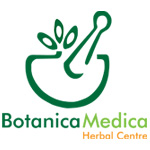Meditation and Cardiovascular Risk Reduction
Despite numerous advances in the prevention and treatment of atherosclerosis (a disease in which plaque builds up inside your arteries), cardiovascular disease remains a leading cause of morbidity and mortality. Novel and inexpensive interventions that can contribute to the primary and secondary prevention of cardiovascular disease are of interest. Numerous studies have reported on the benefits of meditation. Meditation instruction and practice is widely accessible and inexpensive and may thus be a potential attractive cost-effective adjunct to more traditional medical therapies. Accordingly, this American Heart Association scientific statement systematically reviewed the data on the potential benefits of meditation on cardiovascular risk. Neurophysiological and neuroanatomical studies demonstrate that meditation can have long-standing effects on the brain, which provide some biological plausibility for beneficial consequences on the physiological basal state and on cardiovascular risk. Studies of the effects of meditation on cardiovascular risk have included those investigating physiological response to stress, smoking cessation, blood pressure reduction, insulin resistance and metabolic syndrome, endothelial function, inducible myocardial ischemia, and primary and secondary prevention of cardiovascular disease. Overall, studies of meditation suggest a possible benefit on cardiovascular risk, although the overall quality and, in some cases, quantity of study data are modest. Given the low costs and low risks of this intervention, meditation may be considered as an adjunct to guideline-directed cardiovascular risk reduction by those interested in this lifestyle modification, with the understanding that the benefits of such intervention remain to be better established. Further research on meditation and cardiovascular risk is warranted. Such studies, to the degree possible, should utilize randomized study design, be adequately powered to meet the primary study outcome, strive to achieve low drop-out rates, include long-term follow-up, and be performed by those without inherent bias in outcome.
TAKE-HOME MESSAGE
* The authors of this American Heart Association scientific statement reviewed the effects of meditation on cardiovascular risk. The quality and quantity of evidence reviewed were modest but indicate a possible beneficial effect of meditation on cardiovascular risk based on the effects on physiological response to stress, smoking cessation, blood pressure reduction, insulin resistance and metabolic syndrome, endothelial function, and inducible myocardial ischemia. Meditation has been shown to have durable neurophysiological and neuroanatomical effects on the brain, which may account for some of the beneficial cardiovascular effects.
* Meditation is readily available and inexpensive and hence should be considered as an adjunct to evidence-based risk-reduction strategies. Further randomized studies are warranted to evaluate the long-term potential benefits.
At Botanica Medica our Naturopaths are well aware of the importance of meditation, exercise, a good diet and the effect it can have on your life both physically and mentally. They come across lots of interesting studies and are always updating their knowledge. If you would like to make an appointment with one of our Naturopaths call Botanica Medica on 8271-1827 today. They are only to happy to share the knowledge they have gained through their studies and patient outcomes, and get you feeling better. Botanica Medica is located at 97 Glen Osmond Road, Eastwood and appointments are available Monday to Saturday including some after hours.
* Article Citation
Journal of the American Heart Association
Meditation and Cardiovascular Risk Reduction: A Scientific Statement From the American Heart Association
J Am Heart Assoc 2017 Sep 28;6(10)e002218, GN Levine, RA Lange, CN Bairey-Merz, RJ Davidson, K Jamerson, PK Mehta, ED Michos, K Norris, IB Ray, KL Saban, T Shah, R Stein, SC Smith
From MEDLINE®/PubMed®, a database of the U.S. National Library of Medicine.
Published in Primary Care
Journal Scan / Consensus and Guidelines · October 10, 2017
Journal of the American Heart Association
Wellness/Lifestyle/Nutrition
Copyright © 2017 Elsevier Inc. All rights reserved.


Recent Comments